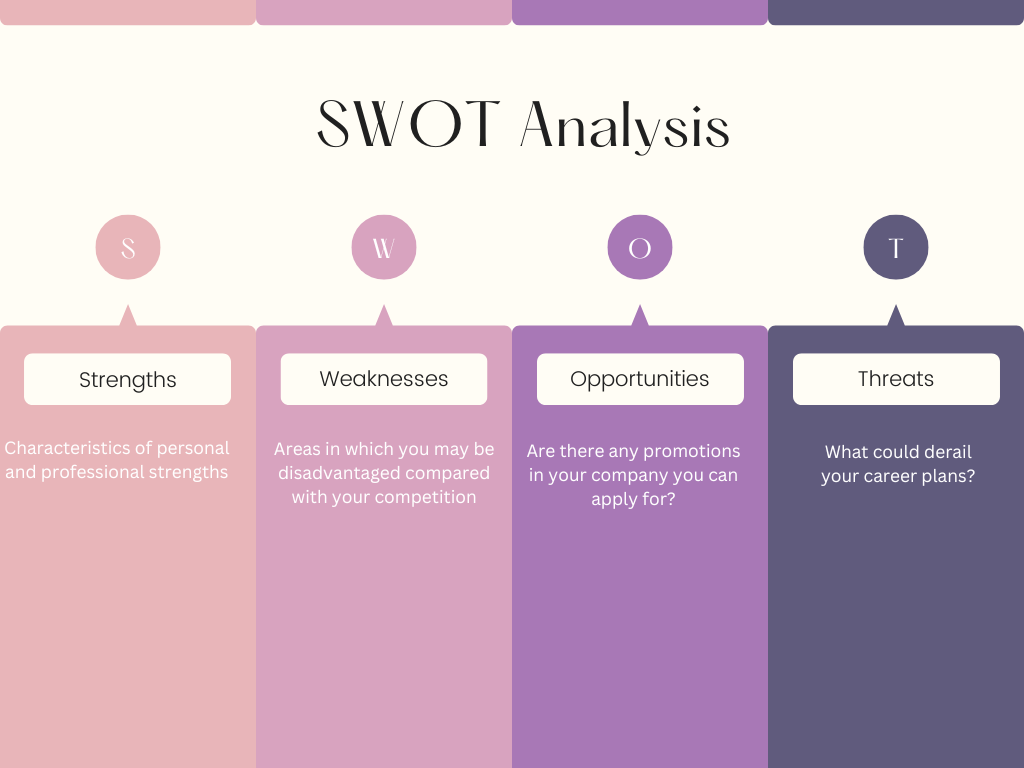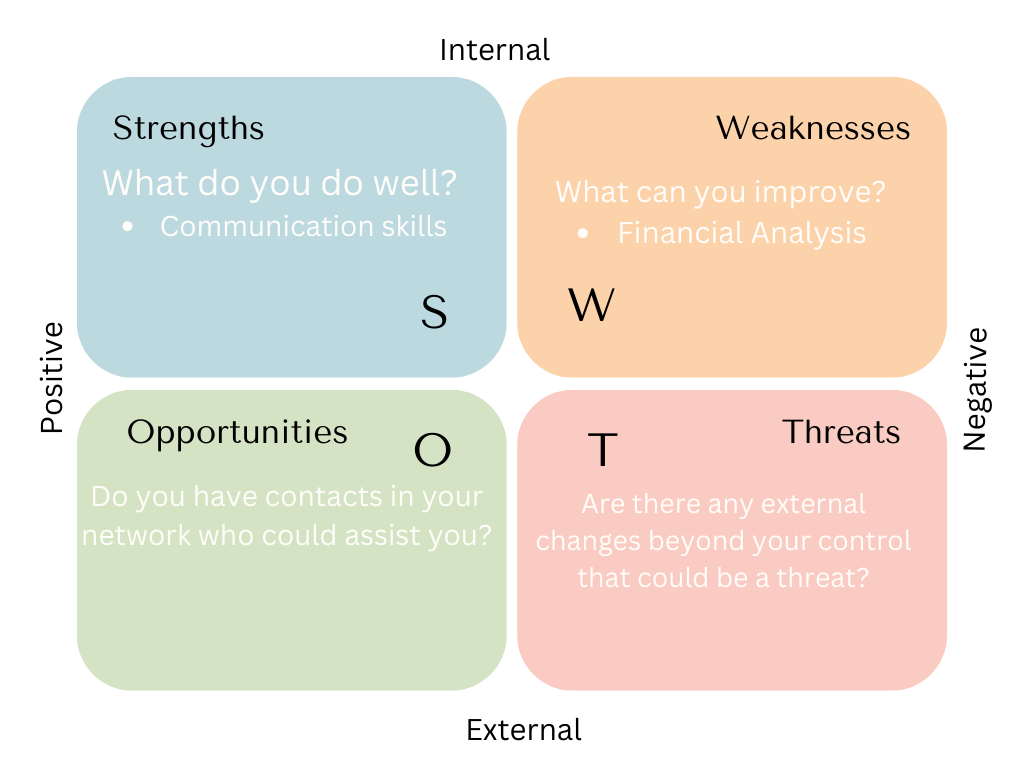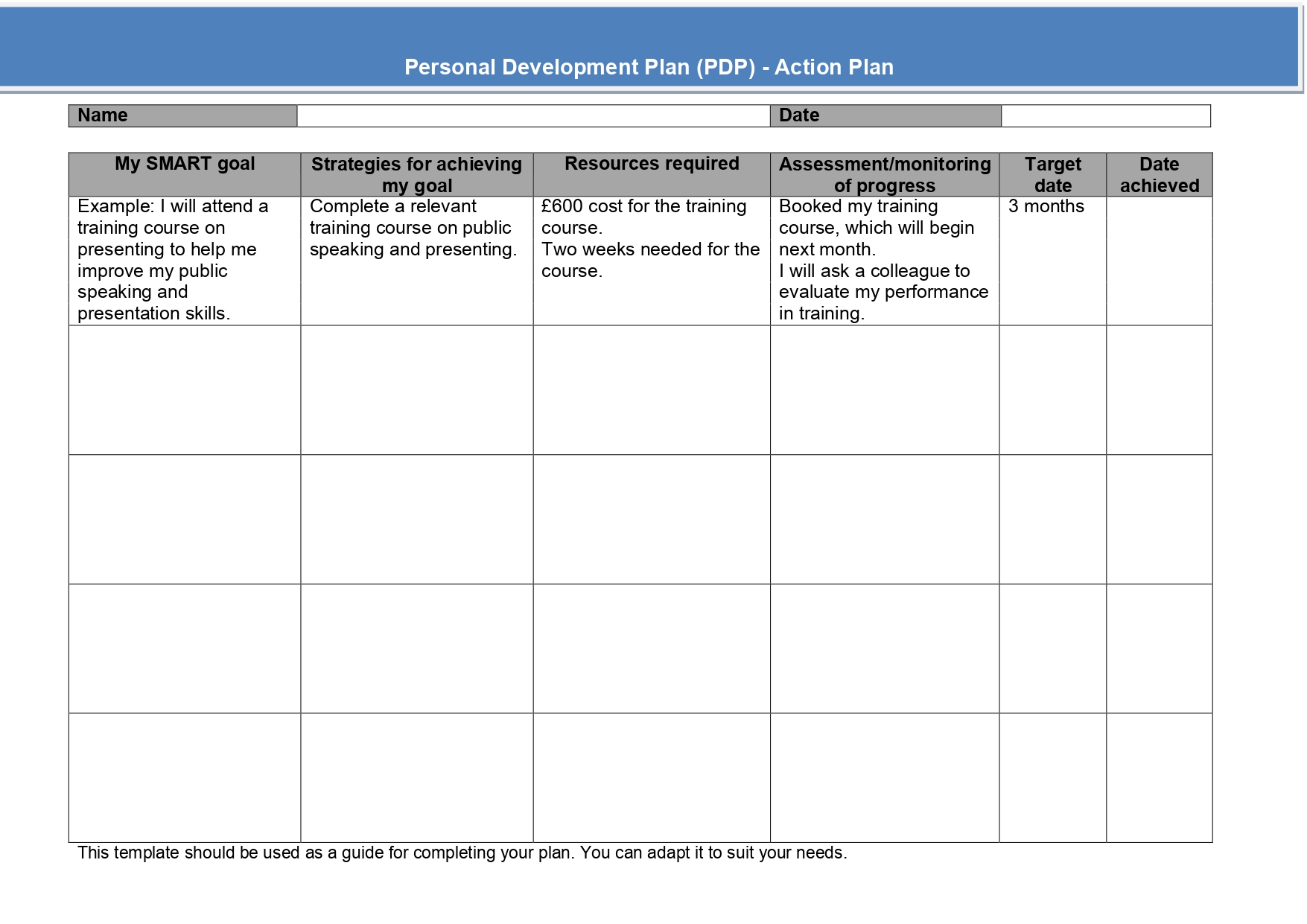
What is Personal Development?
8 minute readPersonal development is a lifelong process where you continuously work towards becoming a better version of yourself. There are many approaches to developing yourself. Some focus on improving certain aspects of your personality or characteristics, while others aim to improve your general well-being and happiness. We will discuss the value of personal development goals for your personal and professional life and how to develop clear pathways for development and future success.
Is Personal Development Important to You?
Personal development is about developing yourself, your interests, and your potential. It helps you become happier, healthier, and more successful. You are responsible for achieving your life goals and quality of life. In your developmental journey, you need to understand that your direction in life is in your hands.
In your professional life, you can draw on the skills of colleagues and a mentor in assisting and ultimately achieving your personal growth journey.
Allows You to Recognise Your Current Skill Set
Personal development allows you to reflect on your talents and build upon those strengths. You will increase your confidence and abilities when you start developing new skills. There are many benefits to personal development. The list highlights some of the most valuable ones.
- Improves Relationships
When you become aware of your strengths and weaknesses, you gain insight into how others perceive you. In addition, developing social skills allows you to understand better what motivates people and how to relate to them.
- Boosts Self Esteem
You begin to realise that you're capable of doing things that you didn't think you could do. You learn that you can accomplish anything you set out to achieve.
- Makes You More Resilient
As you grow stronger, you'll find that you don't get knocked down as easily. As a result, you become less likely to let failure knock you off course.
Refine Your Existing Skills
Recognising your current skills and evaluating your strengths and weaknesses is critical if you are improving yourself. Without this recognition, your career development will always be stuck where you are now.
In my experience, people tend to either focus on what they're good at or bad at. They rarely look at both sides. This makes some sense because most of us want to avoid failure. We don't want to risk failing at something we're good at. But if we don't try anything new, we won't ever learn how to become better at what we already know.
I've found that if I feel like I'm struggling in a particular area, I ask myself, "What am I good at?" Then I think about what I'd like to work on improving. Then, once I have those thoughts down, I start thinking about my weaknesses. And finally, I asked myself, "How could I make this stronger?"
This exercise helps me identify areas of improvement and allows me to take small steps toward becoming a better version of myself.
Personal development increases Employee Confidence
Employees engaged in focused self-development tend to produce higher-quality products and services. In addition, employees who develop themselves professionally feel confident about what they do and how they do it. As a result, they become better communicators, problem solvers, and decision-makers.
When you interact with customers, you want them to come away satisfied. You don't just want them to like you; you want them to respect your judgment and advice. When you engage in focused self-development, you improve yourself and your relationships with others.
Your Personal Development should be your priority:
Personal development helps you grow professionally. As a result, you become better prepared to face professional challenges.
If you want to improve at something, you need to spend time focusing on your weaknesses. It enables you to get out of your comfort zone and increase your knowledge and experiences. For example, you may currently be an expert coding specialist unless you keep your technical expertise updated; career opportunities will pass you by.
Personal development helps build confidence. By learning how to deal with failure, you gain self-assurance.
2 – It develops your strengths
A personal development plan is a key to identifying your training needs and how to improve yourself. You can use it to work on areas where you lack skills, knowledge, or experience. For example, it could help you improve at something you enjoy doing, learn how to do something new, or develop new interests.
There are many types of plans. For example, some people like to list all their goals, while others prefer to focus on one goal at a time. There are even some plans that cover several topics at once.
The critical thing about developing a personal development plan is that it needs to be based on what you want to achieve rather than what you don't want to happen. If you're trying to avoid failure, you'll never succeed. So instead, think about what you'd like to achieve, and write down everything that makes sense to you. Of course, this doesn't mean you shouldn't set realistic goals - remember that you can always revise them later.
If you find it challenging to decide what you want to work on, start by thinking about things you've enjoyed doing in the past. What did you enjoy most about those activities? What aspects of them appealed to you? This is the stage to brainstorm ideas for future projects.
You might be surprised to discover that there are lots of exciting things you haven't tried before and that you have plenty of to explore. However, don't limit yourself to the obvious options either - try anything that sounds fun to you.
Once you've got a few ideas, you can start planning how you can turn each into a project. For example, perhaps you want to develop your artistic skills. You could choose to read books about watercolours, draw, and practice your artistic skills by painting landscapes, people, or still life. Attend art classes at a local art school. Whatever you choose, pick something that feels achievable to you.
Your development plan isn't just about learning new skills, though. It's essential to recognise that everyone has strengths and weaknesses.
Everybody has different skills and strengths, and by focusing on your strengths, you can boost your confidence and self-esteem
3 – It boosts your confidence
Personal growth isn't just about gaining confidence; it's about developing yourself. Your personal growth should include all aspects of life. Mental, physical, emotional, financial, social, etc. Developing yourself means becoming a better version of yourself. Then, when you're ready to take action, you'll have the confidence that comes from preparing yourself.
Tracking Your personal development?
Personal development planning is a process that helps people set themselves up for success. It includes setting goals and aspirations, identifying strengths and weaknesses, and creating plans to achieve those goals.
SWOT Analysis - Internal
To perform an internal SWOT analysis, determine which areas are most important to your personal development. Then, use this information use it to complete your SWOT analysis.
Create Your SWOT Analysis

You can gain real insight into your skills by completing a SWOT analysis, which may persuade you to pursue new career opportunities.
Start by listing your strengths, weaknesses, opportunities and threats. Next, think about your desired outcome and write everything related to your career goals. Then list those same items in a SWOT diagram.
Your strengths are the things that you enjoy doing most. These might include organisational skills, creative problem-solving, and working well under pressure.
Weaknesses are the things you dislike doing most. Some examples include disorganisation, inability to work independently, or feeling uncomfortable speaking in public.
Opportunities are the things you'd like to do more of. Examples include getting promoted, making more money, or learning new skills.
Threats are the things that could potentially hinder your progress. Threats may include losing your job, getting sick, or failing to keep up to speed on your technical skills.
Once you've completed your SWOT analysis, you'll know what you want to accomplish in life. You'll also have a clearer picture of what you need to avoid. Finally, you'll be better prepared to achieve your goals by identifying your strengths, weaknesses, opportunities and threats.

Identify Strengths
A strength is any skill, talent, quality, or characteristic that helps you succeed at your job. Identifying your strengths can help you write a resume and cover letter demonstrating your most relevant qualifications.
Your strengths should be specific to your industry and position. For example, if you are applying for a sales position, you might identify qualities such as persistence, leadership, and communication. These are just examples; think about your areas of expertise, what you do well and what sets you apart.
You may not realise that you already possess specific talents that can benefit you in your current job or future endeavours. Think about your hobbies, interests, and passions. For example, do you enjoy working with numbers? Perhaps you excel at maths. Or maybe you are a talented musician. Whatever your passion, it can serve as a springboard for new opportunities.
Review Your Weaknesses
A SWOT analysis helps you identify your strengths and weaknesses. At first sight, this may seem like a daunting task; however, once you start thinking about the skills which need developing. You will realise that it isn't nearly as scary as you thought. It lays out a development plan. This information is invaluable to planning your future career path.
You should list all your professional bad habits—past performance appraisals and your professors' comments which can provide valuable insight. For example, if you struggle with group work, then you know that you need to focus on improving your interpersonal skills. When you review your weaknesses, consider the biggest roadblocks to your success. These are the ones that you must address first.
Think about your weaknesses as your organisation's leadership would and where you'd like to go in your career path. You'll be surprised how many areas you can improve.
Define Your Opportunities
Opportunities are external factors that affect your life. Therefore, you should look at opportunities outside of your current position. These may include resources, market trends, or other factors that could help your career.
Consider whether any significant changes are happening in your industry that you would find challenging and offer you a new direction for your skill base. For example, a new position might be opening up in your department or organisation that you help in your career development. Maybe a new product is coming out that offers a new challenge for you.
You don't necessarily have to wait until you find a job to start thinking about opportunities. Sometimes, opportunities come to you unexpectedly. So consider the pros and cons before dismissing them.
Understand Potential Threats
There are two main types of threats: internal and external. Internal threats are those that come from within your organisation. Examples include personal issues that might affect your performance, such as stress or anxiety. External threats occur outside your control. These might include a competitor offering a lower price or a natural disaster disrupting supply chains.
Identifying your threats can help you develop strategies to manage them. Once you've identified the threats, you'll need to decide which ones you can remove and which you need to address. Some threats are easier to deal with than others. For instance, if you lack confidence, you can work on improving your self-esteem. On the other hand, if you have identified your procrastination, you'll probably need to find a solution to overcome that problem.
Once you've identified the threats you can handle and those you can't, you'll need to figure out where to focus your efforts. This might improve your communication skills or boost your organisational skills. Whatever your situation, identifying your threats can help you plan your future and prepare for success.
Use a mentor and a coach in creating your development plan."
Many people find themselves stuck in a rut because they haven't figured out how to break free. They're working hard, but they feel like nothing's happening. Or maybe they've been doing the same thing repeatedly without seeing any real progress.
If you're feeling frustrated about where you are in life, there might be something deeper going on here. Maybe you're just trying to get a picture of what you want to do next. But if you're still floundering around, it could mean that you haven't thought things through enough. To make decisions based on your own ideas rather than asking for guidance.
There is another route where you work smarter, not harder. So if you're looking for some outside perspective, consider finding a coach or mentor to help you build a personalised roadmap. A coach or mentor doesn't have to be someone famous; it can be anyone who inspires you. And even though you won't always agree with them, having someone else's opinion can help keep you grounded and focused.
Person Development Plan
Your first step should be to identify your strengths and weaknesses. Once you've done this, make a list of your goals. Remember to keep these goals SMART (Specific, Measurable, Attainable, Relevant, Timely). Make sure that each goal has a clear objective and includes measurable steps. Finally, set aside some time to work towards achieving your goals.
S.M.A.R.T. stands for:
- Specific: Be specific with what you want to achieve. I will complete the listening skills module by January 2023
- Measurable: Your goals should be measurable to monitor your progress and stay motivated throughout the process. Set a specific number or deadline so that you have a clear target to achieve
- Attainable: Don't set yourself up for failure. It is critical to set your goals which are realistic and that you have complete control over
- Relevant Your goals should be relevant to you. They should help you improve your career or quality of life. Make sure that your goals align with your long-term career plans.
- Timely: Setting deadlines is essential for achieving goals. Without a clear endpoint, you may work on a project forever. So be sure to set a reasonable deadline for your goal. Don't expect to accomplish everything in six months, or you could easily lose focus.

You've got the plans in place, so you need to monitor your progress regularly with your manager/ mentor to ensure you're on track with your training development plan. The soft skills of planning and persistence are key to achieving your goals